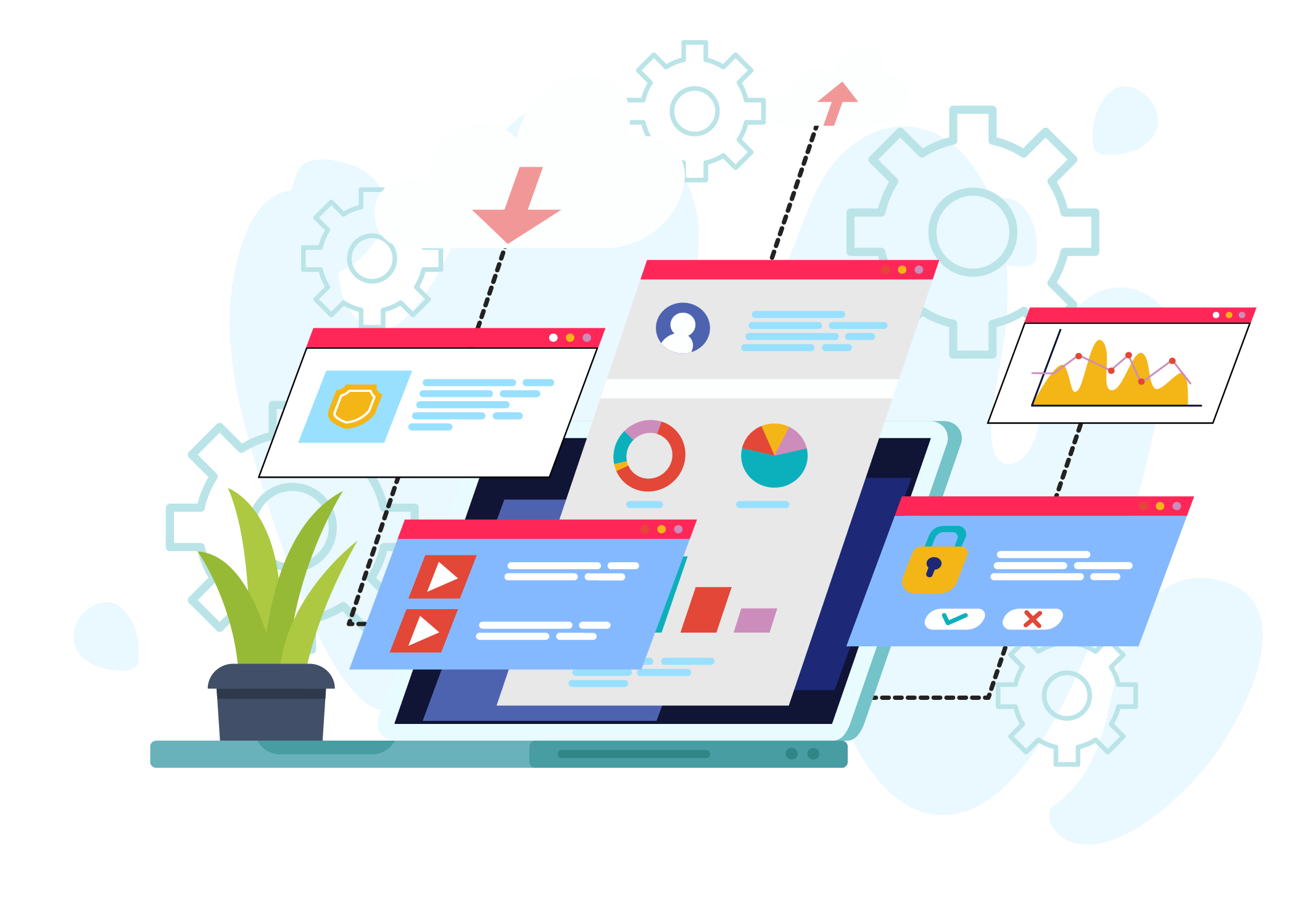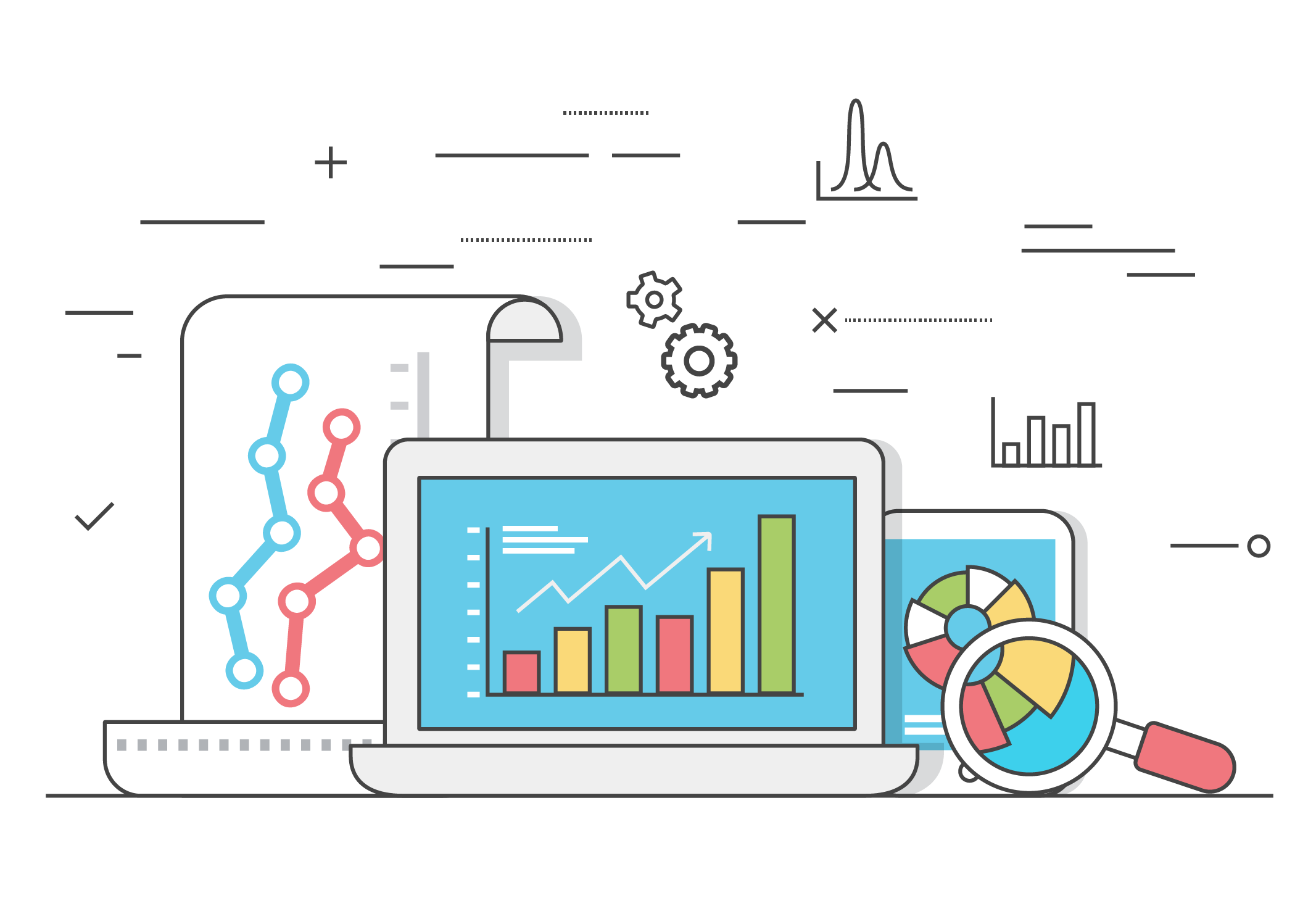Pioneering Strategic Insights: The Business Case for Data Analytics Applications
Data analytics apps are essential in today’s cutthroat corporate environment since they offer insightful data that helps make well-informed decisions. These programs give companies a thorough grasp of how their customers behave, how they operate, market trends, and more. Instead of depending solely on intuition, firms may use data analytics for business decision making to support their strategic decisions with empirical proof. This method improves decision-making processes’ efficacy and efficiency across departments and functions, which produces better results and gives businesses a competitive edge.
 Organizations might discover new avenues for development and innovation by investigating the commercial advantages of data analytics applications. These tools give companies the ability to find hidden correlations, patterns, and trends in their data, enabling them to make data-driven decisions that improve company performance. Furthermore, real-time monitoring and analysis are made easier by data analytics apps, which enables companies to quickly adjust to shifting consumer preferences and market situations.
Organizations might discover new avenues for development and innovation by investigating the commercial advantages of data analytics applications. These tools give companies the ability to find hidden correlations, patterns, and trends in their data, enabling them to make data-driven decisions that improve company performance. Furthermore, real-time monitoring and analysis are made easier by data analytics apps, which enables companies to quickly adjust to shifting consumer preferences and market situations.
Applications for data analytics are essential tools for companies looking to prosper in the data-driven world of today. Organizations may obtain important insights, make wise decisions, and maintain an advantage over competitors by utilizing data. Investing in strong data analytics apps has become crucial for companies trying to sustain growth and keep a competitive edge as the need for data-driven insights keeps rising.
Grasping Data Analytics Applications in Business Context: Defining Scope and Identifying Types
Within the business domain, data analytics applications are essential for extracting meaningful insights from large datasets and enabling firms to make well-informed decisions. Determining the parameters and different forms of data analytics that are pertinent to business operations is necessary to comprehend the extent of data analytics in this context.
In business, data analytics refers to a wide range of methods and instruments used to derive significant trends, patterns, and correlations from unprocessed data. To extract useful insights, this approach makes use of data mining tools, machine learning algorithms, predictive modeling, and statistical analysis. These insights give companies a competitive edge in the market, improve client experiences, and optimize operations.

There are many different corporate domains where data analytics tools are used, such as marketing, finance, operations, and human resources. For example, companies use data analytics in marketing to analyze campaign effectiveness, segment customers, and personalize campaigns. Data analytics is used in finance to help with financial forecasts, risk assessment, and fraud detection. Similar to this, companies use data analytics in operations to optimize supply chains, expedite workflows, and better allocate resources.
To use the best tools and approaches for their unique needs and goals, firms must have a thorough awareness of the many types of data analytics applications. Prescriptive analytics, which offers suggestions for decision-making based on optimization algorithms and predictive models, descriptive analytics, which summarizes historical data, and predictive analytics, which attempts to forecast future outcomes based on historical data, are a few examples of these types.
To set it simply, comprehending the breadth of data analytics in business entails identifying its many uses, from descriptive to prescriptive analytics, and knowing how these uses can influence strategic decision-making and the performance of organizations.
Exemplifying the Strategic Advantages of Data Analytics Applications in Business
As we explore the Strategic Impacts of Data Analytics Applications in Business, we make our way through the complex network of improved competitiveness, operational effectiveness, and decision-making made possible by these game-changing technologies. Businesses need to use data-based insights to realize their full potential and stay ahead of the curve in today’s digitally driven environment. Organizations can make well-informed decisions that lead to success by utilizing advanced analytics solutions to obtain deep insights into consumer behavior, market trends, and operational dynamics.
The fundamental strength of data analytics for business is its unmatched capacity to produce useful insights from large datasets. This makes it possible for companies to find new development prospects, reduce procedures, and optimize their operations. Through the utilization of data, companies can reveal patterns, correlations, and trends that might otherwise remain undetected, enabling them to remain flexible and responsive in a constantly changing market environment.

Additionally, cost savings and increased operational efficiency are made possible by data analytics solutions. Businesses can simplify operations and deploy resources more effectively by identifying areas of inefficiency, automating repetitive procedures, and streamlining processes. This improves overall performance and production in addition to lowering costs.
Data analytics apps give companies a competitive edge by helping them predict client wants, keep ahead of market trends, and react quickly to shifting circumstances. Having access to real-time insights enables firms to make data-driven decisions that establish them as leaders in their market and promote long-term growth.
There is no denying the strategic advantages of data analytics applications in a company. These technologies are essential to the success of contemporary businesses because they provide decision-makers with insights that can be put into practice, boost operational effectiveness, and preserve a competitive edge. Using data analytics apps will be essential to opening doors and spurring creativity in the constantly changing business landscape as companies continue to embrace digital transformation.
Overcoming Challenges in Implementing Data Analytics Solutions
While using data analytics solutions within a company might be revolutionary, there are certain issues and challenges to consider. Ensuring the integrity and high quality of the data being examined is a major challenge. Poor decision-making could arise from conclusions that are misleading or erroneous in the lack of reliable evidence. Additionally, funding data analytics projects and locating the necessary knowledge can be challenging. Businesses frequently have budget and talent constraints, so it’s important to appropriately prioritize training activities and investments.
Handling privacy and security issues related to handling sensitive data is another important factor to take into account. Businesses need to make sure they comply with data privacy requirements, such as the CCPA and GDPR, and put strong security measures in place to protect sensitive data. If this isn’t done, there may be legal repercussions and harm to one’s reputation, which could erode stakeholders’ and customers’ faith.
Notwithstanding these obstacles, resolving them is necessary to gain from data analytics. Businesses can increase the accuracy and dependability of their data by investing in data quality management systems. Providing competent data specialists with regular training and employing them are two smart ways to allocate resources strategically and create a strong analytics team. Furthermore, putting strong encryption and data governance frameworks in place helps reduce privacy and security threats and boost trust in data handling procedures.
In the end, companies need to take a proactive stance to deal with these issues and make use of the potential that data analytics brings. By doing this, businesses will be able to take advantage of data-driven insights to stimulate innovation, boost productivity, and keep a competitive advantage in today’s fast-paced corporate environment.
Fostering a Data-Driven Organizational Culture: Key Strategies for Success
It takes strategic endeavors to develop a thorough grasp of the value of data analytics to establish a data-driven organizational culture. Developing a mentality that allows data insights to trump intuition alone in making judgments is necessary to achieve this. Companies ought to give priority to training and education initiatives that improve data literacy at all organizational levels to accomplish this. Further supporting the importance of data analytics in achieving business objectives is the establishment of transparent channels of communication for the exchange of data-driven accomplishments and insights.
To handle the increasing volume and complexity of data, it is imperative to have scalable and adaptable data infrastructure. To do this, you must make investments in reliable cloud-based solutions and data management systems that can handle a variety of data sources and analytical tasks with ease. Organizations should make sure that their data analytics capabilities stay current and useful over time by implementing an agile infrastructure that can adjust to changing business needs.
Implementing data analytics successfully also requires ongoing learning and modification. Organizations need to adopt new tools, approaches, and methodologies with agility and proactivity in light of the quickly evolving technology world. This entails creating an environment that values experimentation and creativity, where staff members are motivated to investigate novel concepts and methods related to data analytics. Through constant learning about new trends and industry best practices, businesses can stay ahead of the curve and optimize the value of their data assets.
Revealing the Road Ahead: Charting Future Opportunities in Data Analytics Applications
Using data analytics apps has become essential for making well-informed decisions in the mutable realm of modern business. The first step in this journey is to comprehend the importance and range of data analytics in corporate operations. We discover both the benefits and drawbacks of data analytics as we work our way through its intricate implementation. Organizations can gain a significant competitive edge and unlock significant value by developing a data-driven culture and developing strategies for successful adoption. For companies ready to harness the potential of data analytics technologies, the future is full of possibilities.
Explore a world of possibilities by opting for Pattem Digital for your data analytics requirements. We enable companies to fully utilize data analytics for expansion and prosperity by utilizing our proficiency in utilizing state-of-the-art technology and tried-and-true tactics. Our hardworking staff is committed to providing data analytics services that provide noticeable outcomes and expand the potential of your company. Count on Pattem Digital as your guide as you navigate the intricacies of data analytics and turn obstacles into opportunities.





